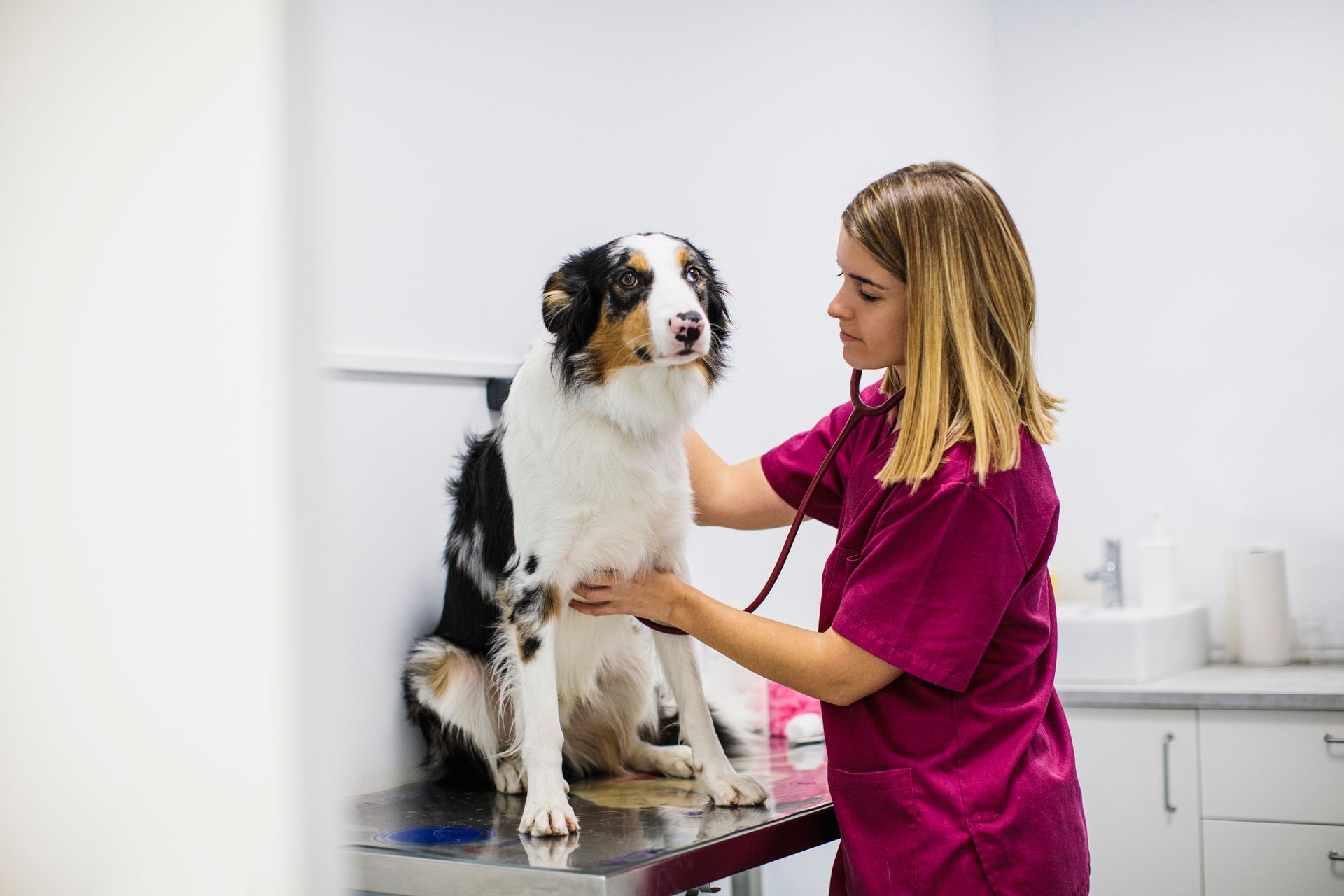3 Common Skin Conditions in Dogs

Dogs are wonderful companions that can provide you with years of love and friendship. However, they can also be susceptible to a range of health conditions, including skin problems.
If you're a dog owner, you need to be able to recognize the signs and symptoms of common skin conditions so you can get your pet the treatment they need.
This blog post takes a look at three of the most common skin conditions your dog might suffer from.
1. Allergic Dermatitis
Allergic dermatitis is an allergic reaction to a substance that comes into contact with your dog's skin. This condition can be a result of anything from environmental allergens like pollen or dust mites to food allergies or reactions to certain medications.
Allergic dermatitis can cause your dog to itch and scratch excessively. Extreme irritation can lead to secondary skin infections like hot spots. Your dog may also lick or chew at their skin more than usual to help soothe the itchiness.
You might also notice other symptoms such as red, inflamed skin; hair loss; bumps or pimples; and scaly patches. Usually, the symptoms will be most severe around your dog's ears, paws, and underarms.
If you suspect that your dog has allergic dermatitis, take them to the vet for an examination. Your vet will likely recommend a course of treatment that may include antibiotics, antihistamines, or steroids. The treatment option they choose will depend on the exact cause of the allergy.
2. Mange
Mange is a skin condition that occurs when tiny parasitic mites burrow into your dog's skin and hair follicles. Two types of mange exist: sarcoptic and demodectic.
Sarcoptic Mange
Sarcoptic mange, also known as canine scabies, is a highly contagious skin disease due to the Sarcoptes scabiei mite. These mites are tiny parasites that burrow into the skin and cause intense itching and irritation. These mites can easily pass from one dog to another and can even infect humans.
Symptoms of sarcoptic mange include intense itching, reddened skin, and hair loss. Your dog may also develop a rash or bumps on their skin. The skin may also have a crusty appearance in some cases. These symptoms are usually most severe around the ears, legs, and belly.
Sarcoptic mange is a serious condition that requires prompt treatment by a vet. The vet will likely prescribe medication to kill the mites and relieve the itchiness.
Demodectic Mange
Demodectic mange, also known as Demodex, happens because of the Demodex Canis mite. These mites exist in small numbers on most dogs, but they can overgrow and cause problems if your dog has a weakened immune system.
Dogs with demodicosis usually have patchy hair loss and red, scaly skin. The symptoms are often most around the head and face.
Demodectic mange is not contagious. However, the condition can sometimes be difficult to treat and requires aggressive counteractions. Your vet may prescribe medication to kill the mites and restore the damaged skin. They may also advise you to periodically use special shampoos or dips to keep the symptoms at bay.
3. Pyoderma
Pyoderma is a bacterial skin infection that can affect dogs of any age, breed, or size. The most common type of pyoderma is superficial pyoderma, which affects the upper skin layers. Deep pyoderma is a more serious infection that penetrates the deeper dermis layers.
Pyoderma is usually a result of staphylococcus bacteria. Symptoms of pyoderma include red, inflamed skin; pus-filled bumps; or lesions.
The skin may also appear crusty. Your dog may also itch or scratch excessively. The infection can occur anywhere on your dog's body, but you're likely to see the effects around the groin, paws, and underarms.
Pyoderma is a serious condition that requires prompt treatment by a certified vet. The vet will likely prescribe antibiotics to kill the bacteria and help heal the skin.
Does your dog have a skin condition that you can't seem to treat? Have you struggled to find an effective treatment? Schedule an appointment with Angel Pet Hospital today. Our team of experts can help you find the best treatment for your pet's specific condition.

















